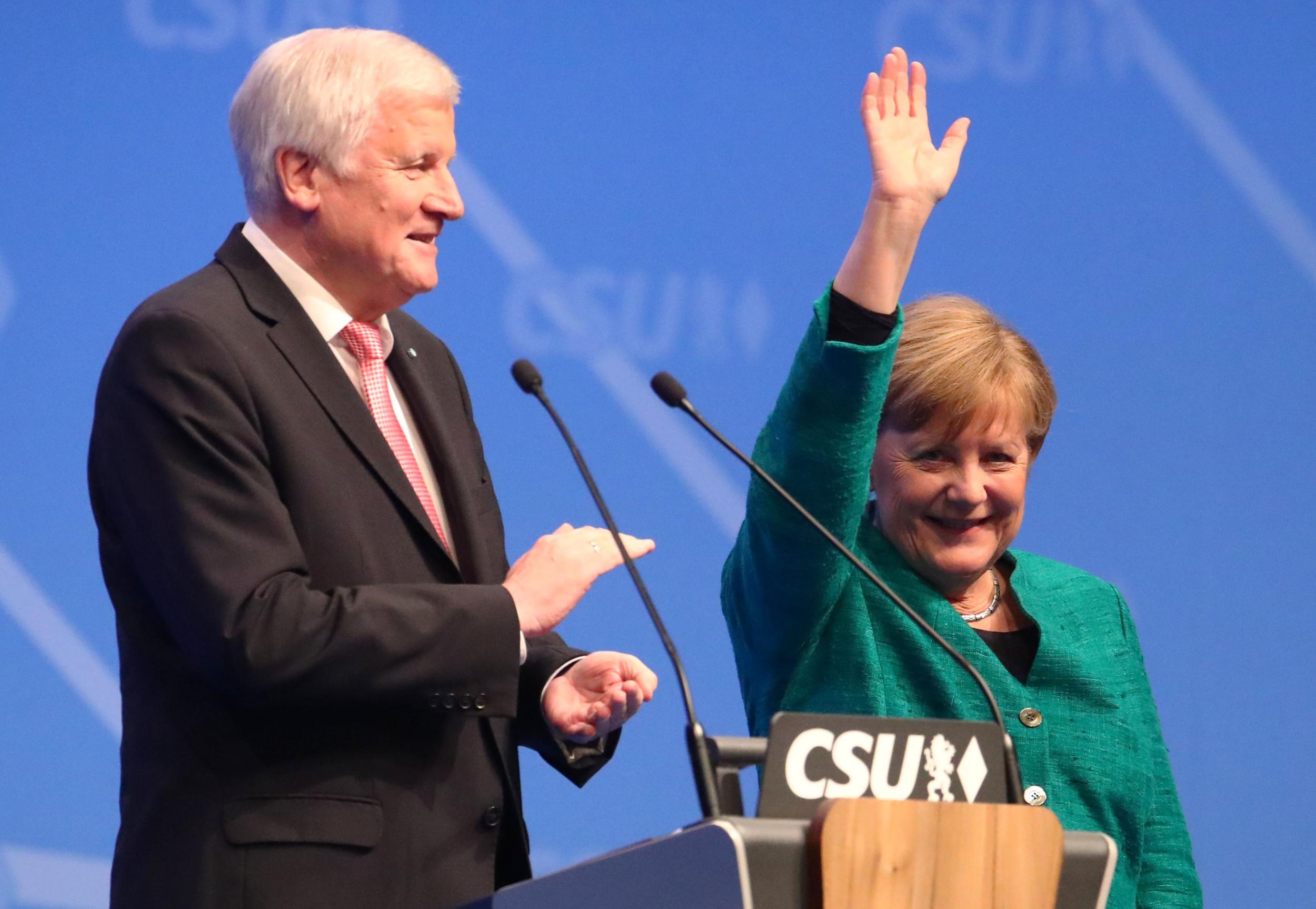Germans unimpressed with Merkel's rebellious anti-migrant minister Seehofer, poll shows
Rebellious interior minister Horst Seehofer's popularity has plummeted in particular
Your support helps us to tell the story
From reproductive rights to climate change to Big Tech, The Independent is on the ground when the story is developing. Whether it's investigating the financials of Elon Musk's pro-Trump PAC or producing our latest documentary, 'The A Word', which shines a light on the American women fighting for reproductive rights, we know how important it is to parse out the facts from the messaging.
At such a critical moment in US history, we need reporters on the ground. Your donation allows us to keep sending journalists to speak to both sides of the story.
The Independent is trusted by Americans across the entire political spectrum. And unlike many other quality news outlets, we choose not to lock Americans out of our reporting and analysis with paywalls. We believe quality journalism should be available to everyone, paid for by those who can afford it.
Your support makes all the difference.Angela Merkel’s rebellious interior minister has failed to impress Germans with his hardline stance on migration, according to new polling likely to reinforce the chancellor’s position.
A survey of public opinion found that Horst Seehofer’s popularity has fallen by a net 16 points with the general public since he started agitating for tougher border controls.
Mr Seehofer’s approval rating has tanked to just 27 per cent, falling faster than Ms Merkel’s. The chancellor also appears to have been slightly damaged by the row, her approval falling 2 per cent to 48 per cent, according to the ARD/Infratest dimap poll.
The results are a blow for Mr Seehofer, who observers say had been taking a hardline stance on border control to shore up the popularity of his right-wing CSU party ahead of regional elections in Bavaria due in the autumn.
The CSU, who have been regional allies of Ms Merkel’s CDU since 1949, fear they will lose ground to the far-right AfD, who have been on the march for years and made gains in last year’s Bundestag elections. Bavaria is on the migration route from the Balkans and has also traditionally been seen as more conservative than the rest of Germany. The AfD did well there last year.

The pair of conservative politicians reached a compromise position at the start of the week after late night talks. Under the new policy, some migrants would be held in centres, with the aim of returning those who had registered in another EU country back to that state.
Germans have also lost confidence in Ms Merkel’s coalition government more generally since the row started. Dissatisfaction with the work of the administration is up 15 points since the last survey from the same series, the poll shows, while satisfaction is down 16.
Mr Seehofer, the country’s interior minister, had threatened to unilaterally send police to the German border and had wanted migrants to be turned away there before they could enter. Ms Merkel had wanted policy to be coordinated at a European level, fearing countries going their own way could spark a wave of border controls popping up across the continent, endangering the passportless Schengen area.
The compromise solution appears to be on course to do just that, with Austria calling for clarification from its northern neighbour and hinting that it might close its southern border to prevent it becoming the final destination for refugees and migrants heading towards Germany.

Join our commenting forum
Join thought-provoking conversations, follow other Independent readers and see their replies
Comments